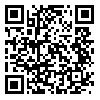

BibTeX | RIS | EndNote | Medlars | ProCite | Reference Manager | RefWorks
Send citation to:
URL: http://jdisabilstud.org/article-1-2578-en.html
2- MA in School Counseling, Shahid Chamran University of Ahvaz, Ahvaz, Iran
3- MA Student in Family Counseling, Islamic Azad University Arak Branch, Isfahan, Iran
Abstract
Background & Objectives: In academic life, students face various challenges, obstacles, and pressures specific to this life. Some students overcome these obstacles and challenges, but other students fail in this field and suffer from academic stress. In the current situation, academic stress is one of the most important challenges that most learners experience, which may have a negative impact on the academic vitality and academic enthusiasm of students. Various research findings have shown that students who are cognitively and emotionally interested in learning are more likely to spend more time and effort on homework and study, and experience less stress than students who are less emotionally and cognitively eager. According to what was said, the present study was conducted to determine the effectiveness of stress immunization training on academic vitality and academic enthusiasm of students with academic stress.
Methods: The research method was quasi–experimental with a pretest–posttest design with a control group. The statistical population of the present study included all tenth–grade students of the second secondary school in Ahvaz in the academic year 2020–2021. To select the samples, first, a cluster was selected from the education districts of Ahvaz City, Iran using cluster random sampling method. Then, two schools were selected from the secondary school girls in this area. Due to the outbreak of the coronavirus, a link to the questionnaires was sent to the students' parents. Under parental supervision, the students filled out the academic stress questionnaire. The sample is recommended in thirty experimental designs. Through the results, 40 students who had the highest score (150 and above) on the Academic Stress Questionnaire (Zajacova et al., 2005) were selected and randomly assigned to the experimental and control groups (n=20 for each group). The intervention protocol was based on the Meichenbaum study (1974), which was arranged in eight 90–minute sessions once a week for two months and was performed only for the experimental group. For data collection, Academic Enthusiasm Questionnaire (Fredricks et al., 2004), Academic Vitality Scale (Dehghanizadeh & Hossein Chari, 2012) and Academic Stress Questionnaire (Zajacova et al., 2005) were used. The data obtained from the research were analyzed by descriptive statistics (mean and standard deviation) and inferential statistics (multivariate covariance analysis method) using SPSS version 22. The significance level of all tests was considered 0.05.
Results: The results showed that the academic vitality (p<0.001) and academic enthusiasm (p<0.001) of students with academic stress in the experimental group was significantly higher than students with academic stress in the control group after eliminating the effect of the pretest. According to Eta results, the variables of academic vitality and academic enthusiasm were 82% and 75%, respectively, affected by the intervention with stress immunization training.
Conclusion: Based on the findings of the study, stress immunization training is effective in increasing the academic enthusiasm and academic vitality of students with academic stress. Therefore, the mentioned training can be used by counselors and therapists to improve the academic vitality and academic enthusiasm of the students.
| Rights and permissions | |
 |
This work is licensed under a Creative Commons Attribution-NonCommercial 4.0 International License. |


